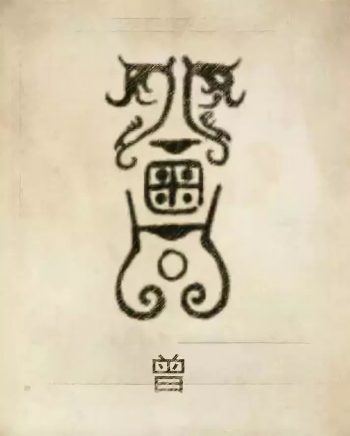The Zeng(zēng) surname is more than a family name—it’s a living bridge between ancient Chinese philosophy and modern innovation. With roots stretching back to the legendary Xia Dynasty (2070–1600 BCE) and ties to Confucian teachings, the Zeng clan offers a unique lens into China’s cultural. For readers curious about genealogy or Asian history, this story reveals how one surname shaped ethics, governance, and even agricultural science.

Ⅰ、Surname origins
1. The Xia Dynasty Connection
The Zeng surname traces its primary lineage to Shaokang, a ruler who revived the Xia Dynasty. Around 1900 BCE, his youngest son Qulie was granted the territory of Zeng State (modern Linyi, Shandong). This kingdom thrived for nearly 2,000 years until its conquest by the Ju State in 567 BCE. Surviving royals fled to neighboring Lu State, dropping the radical "阝" (symbolizing land) from "鄫" to create the surname Zeng—a poignant act of cultural preservation.
2. Migration & Adaptation
Southern Exodus: During the Han Dynasty (206 BCE–220 CE), scholar Zeng Ju led a migration to Jiangxi to escape political turmoil, establishing the influential Luling Zeng branch.
3. Take the name of the state as the surname
During the Western Zhou Dynasty, the descendants of King Mu of Zhou were enfeed in the state of Zeng (present-day Fangcheng, Henan), and later perished due to the expansion of the state of Ch. Some of the clansmen took the name of the state as their surname, forming the Ji surname Zeng family.
Ⅱ、Legendary Figures
1. Ancient Icons
Zengzi: Confucius’ star disciple, revered as the "Sage of Familial Ethics." His teachings in The Great Learning and Classic of Filial Piety became cornerstones of East Asian moral philosophy.
Zeng Gong: A literary giant of China’s Song Dynasty, famed for essays promoting practical governance. He transformed Jinan into the "City of Springs" through hydraulic engineering.
2. Modern Visionaries
Zeng Guofan: Qing Dynasty reformer who modernized China’s military and industry. His family letters, emphasizing discipline and education, remain bestsellers in Asia.
3. Unsung Heroes
Zeng Anzhi (12th century): Authored The Rice Chronicles, an agricultural manual that revolutionized rice cultivation—think of him as China’s answer to George Washington Carver.
Ⅲ、Cultural Legacy
1. Confucian Values in Action
"Three Reflections Hall": Named after Zengzi’s motto "I reflect three times daily," this ancestral hall tradition emphasizes self-improvement through loyalty, honesty, and scholarship.
Family rules such as "filial piety, fraternal love, loyalty, and honesty; courtesy, righteousness, integrity, and shame" become the values of the family and are strictly inherited through genealogical records.
2. Global Diaspora
From Penang’s Zeng Clan Jetty (a UNESCO site) to Silicon Valley tech boards, the Zeng surname thrives worldwide. North American Zeng associations host annual gatherings to celebrate traditions like Dragon Boat Racing and ancestral tomb-sweeping rituals.
3. Word symbolism
The Chinese character combines "曰" (speech) and "田" (field), symbolizing oral tradition and agricultural roots—a nod to the clan’s role as educators and land stewards.
Ⅳ、Modern Impact
1. Historical Contributions
The Xiang Army founded by Zeng Guofan not only put down the Taiping Rebellion but promoted modern military reforms; his family's industrial ventures during the Westernization Movement contributed to industrial development.
2. Modern Influence
The Zeng s is widely distributed overseas, such as in Southeast Asia, Europe, and the United States, forming a transnational kinship network. Contemporary celebrities like the revolutionary Z Sheng and aerospace expert Zeng Guangshang continue to extend the family's influence.
3. Cultural Symbolism
The "purity" the Zeng surname (without foreign surname changes) has become a typical case for Chinese surname research, and its patriarchal system and ethical concepts provide reference for traditional governance in modern society.
Conclusion
The history of the Zeng family is a microcosm of the inheritance of Chinese civilization, from the bloodline of Day to modern elites, its cultural core has always been based on filial piety, self-cultivation, and pragmatism. Whether it is Zeng's Confucian thought or Zeng Guofan's practical application, they have profoundly influenced the ethics and values of Chinese society. By tracing the origin development of the Zeng family, we can see how a family uses cultural power to span a thousand years and continuously shape the national spirit.